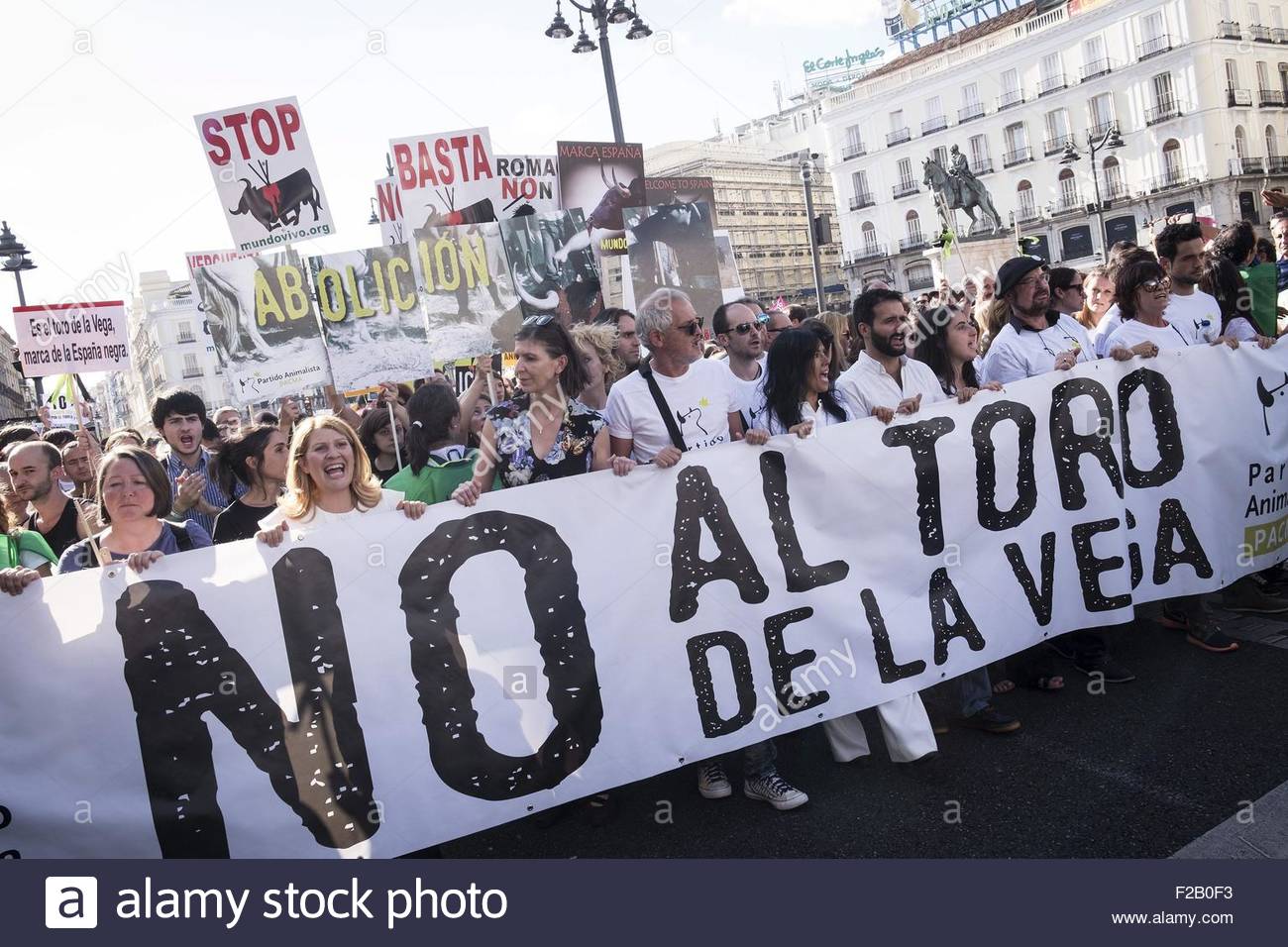By Rapahel Minder, The New York Times, May 19, 2016
 |
| Protesters at bull-killing Toro de la Vega festival in 2015 |
MADRID — The killing of bulls at an annual town festival in Spain was outlawed on Thursday, in what animal rights activists hailed as a major victory in their campaign to banish traditional events that involve what they consider cruelty.
The decision by the regional government of Castile and León to ban killings at the annual Toro de la Vega festival in the town of Tordesillas, and other similar events, comes amid mounting tensions in Spain over festivities in which bulls take center stage, including bullfighting.
An overhaul in Spanish politics is also influencing the debate as the country prepares for a rerun of national elections next month. A new generation of far-left politicians is leading the call to end public financing of festivals involving bulls, which have been fiercely defended by the conservative establishment and the Popular Party of Mariano Rajoy, Spain’s caretaker prime minister.
The Toro de la Vega festival, held in September, has in recent years become an epicenter of protests by animal rights activists who consider it a particularly gruesome public event. Bulls are killed with spears after being pursued on foot and horseback.
Pacma, a political party that defends the rights of animals, said in a statement Thursday that the ban was “a historic step” toward eliminating all celebrations involving violence toward animals. The regional government’s decree, however, must still be approved by the regional Parliament. The mayor of Tordesillas told reporters on Thursday that his administration would appeal the ban in court.
The regional decree says that the ban is a response to the rising number of protests against animal violence. While it notes that the festivals are part of the country’s cultural heritage, modern lawmakers must recognize that times and the sensitivities and ethics of Spaniards have changed.
While the ban did not address bullfighting, that industry has languished in recent years as revenues and government subsidies have declined. Animal rights activists hope that more regions will follow the lead of Catalonia, which held its final corrida in 2011, after a ban on bullfighting was enacted.
While the ban did not address bullfighting, that industry has languished in recent years as revenues and government subsidies have declined. Animal rights activists hope that more regions will follow the lead of Catalonia, which held its final corrida in 2011, after a ban on bullfighting was enacted.
No comments:
Post a Comment